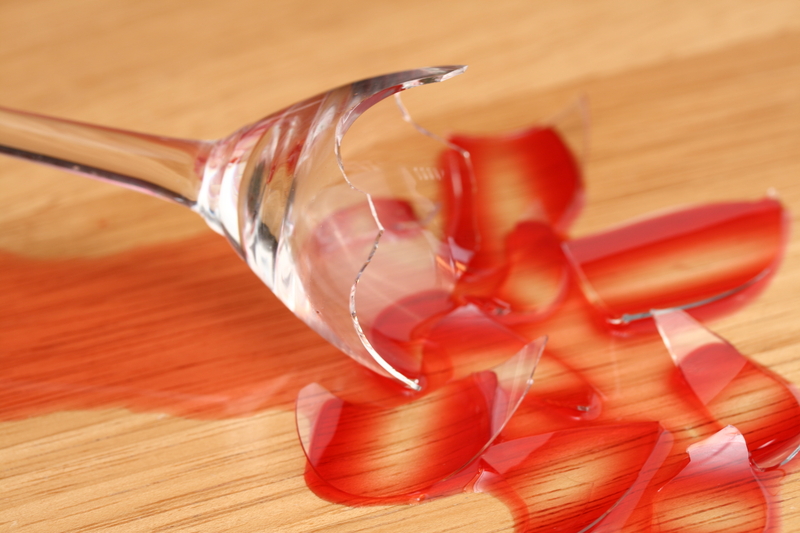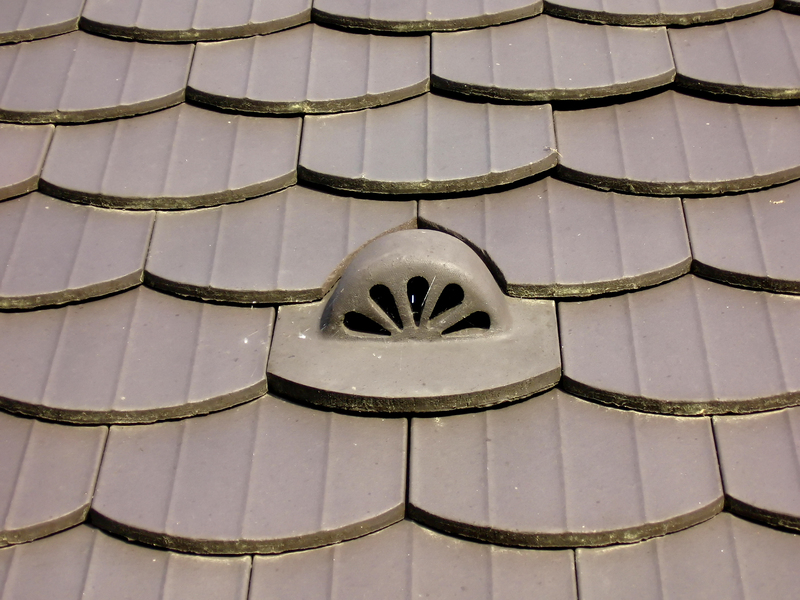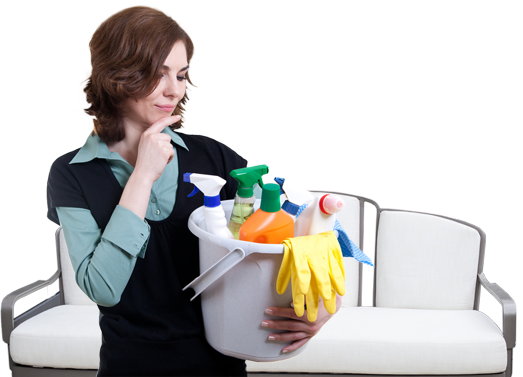Conquer Pet Odor and Revitalize Your Space
Posted on 10/06/2025
Conquer Pet Odor and Revitalize Your Space: The Ultimate Guide
If you share your home with beloved pets, you're likely familiar with the challenges of keeping your space smelling fresh. Pet odor removal is a top concern for pet owners, whether it's the result of accidents, shedding, drool, or simply the day-to-day activities of dogs, cats, or other furry companions. The good news? You can conquer pet odor and revitalize your space with proven strategies, smart cleaning routines, and the right products.
This comprehensive guide will explore the causes of pet odor, why traditional cleaning methods often fall short, and actionable steps for permanently eliminating pet smell. Whether you're a proud dog-owner, a cat enthusiast, or have other critters at home, these tips will help you create an environment that's inviting for both humans and animals.

Understanding Pet Odor: Why Does It Happen?
To effectively eradicate pet odor, it's essential to understand why it lingers in our homes. Pet-related smells can come from:
- Urine and feces accidents (especially common with puppies, aging pets, or untrained animals)
- Natural oils produced by animal skin and fur
- Saliva (think slobbery toys and chew bones left around the house)
- Shedding and dander, which can hold odors if not thoroughly removed
- Litter boxes and pet bedding that isn't cleaned regularly
These sources often seep into fabrics, carpets, and even walls. Over time, the odors become more than just a nuisance--it can be a persistent embarrassment, particularly when guests arrive.
Why Masking Scents Doesn't Work
It's tempting to reach for air fresheners or sprays that promise instant freshness. However, most only mask pet smells with heavy fragrances, without actually addressing the source. As a result, the underlying problem remains, and odors inevitably return once the scent fades. True odor control involves tackling the cause--not just the symptom.
Step-By-Step Strategies to Eliminate Pet Odor for Good
1. Act Fast with Accidents
The sooner you respond to a pet accident, the better your odds of preventing an enduring scent. For fresh urine stains:
- Blot the area with paper towels--never rub, as this pushes urine deeper.
- Rinse with cool water and blot again.
- Apply an enzyme cleaner designed for pet urine, following package directions. Enzyme-based formulas break down the proteins in pet pee, permanently removing odor, rather than masking it.
2. Deep Clean Carpets and Upholstery
Upholstery, rugs, and carpet act as sponges for pet smells. Regular vacuuming isn't enough; periodic deep cleaning is vital.
- Invest in a carpet shampooer or use a professional cleaning service.
- Spot-treat with baking soda overnight before vacuuming to neutralize lingering smells.
- Don't forget upholstery--steam clean furniture or use upholstery-cleaning sprays.
3. Wash Pet Bedding and Accessories Frequently
Beds, toys, blankets, and even collars soak up pet oils and saliva. Machine-washing pet bedding weekly can transform your home's scent. Add a cup of white vinegar to your wash cycle for a natural odor-fighting boost.
4. Clean Litter Boxes and Cages Thoroughly
Cat litter boxes are a notorious source of persistent smells. Help defeat cat odor by:
- Scooping solid waste daily
- Changing litter entirely every 1-2 weeks
- Washing the box with unscented soap and water (avoid ammonia-based cleaners)
- Using a quality clumping litter and odor-neutralizer powders as needed
For small animal cages, a similar protocol applies--disassemble, scrub, and ensure bedding or substrate is replaced the moment it's damp or soiled.
5. Control Pet Odor at Its Source: Your Pet!
Healthy pets smell less. Commit to regular grooming:
- Bathe dogs as recommended for their breed (not too often, as this strips healthy oils)
- Brush pets to remove loose fur and dander
- Wipe paws and fur after walks to minimize tracked-in dirt
- Mouth and ear care matters--clean ears and brush teeth to prevent bad breath and infections
6. Address Walls, Floors, and Other Surfaces
Sometimes, walls and baseboards retain pet odors, particularly if there have been repeat accidents. Use a mild vinegar-water solution (test first!) or a specialized cleaner to wipe down hard surfaces and minimize embedded scents.
7. Refresh the Air and Ventilate
- Open windows regularly to let fresh air circulate
- Use purified air filters that trap dander and airborne odors
- Set up bowls of baking soda or activated charcoal as natural odor absorbers
Choosing the Best Pet Odor Eliminators: Products That Work
Enzyme Cleaners
The gold standard in pet smell removal is an enzyme cleaner. These use beneficial bacteria to digest the organic matter responsible for odors, breaking it down so completely that even pets can't detect lingering traces. Look for products advertised as "bio-enzymatic" or "odor eliminators" and always follow the instructions for best results. Enzyme cleaners are a must for cat urine, which can be especially stubborn.
Natural Deodorizers
For a DIY approach, baking soda is king. Sprinkle over carpets and soft furnishings, let sit for a few hours (or overnight), then vacuum well. White vinegar, diluted with water, can safely neutralize many smells; spray lightly on washable surfaces. Essential oil sprays (like lavender or tea tree) can add a pleasant scent, but use sparingly and avoid toxic oils around cats and sensitive pets.
HEPA Air Purifiers
High-Efficiency Particulate Air (HEPA) filters capture pet hair, dander, and odor-causing particles from the air. Place air purifiers in main living areas and switch out filters as directed for optimal performance.
Odor-Absorbing Gels and Charcoal Bags
- Odor-neutralizing gels (placed discreetly near litter boxes or pet beds) gradually absorb unwanted smells
- Activated charcoal pouches are eco-friendly and can be revived by placing in sunlight to dry out and reuse
Habits for a Fresh, Revitalized Home
Consistency is the secret to defeating pet odor. Make these freshening routines part of your weekly schedule:
- Vacuum and mop all pet areas at least twice a week
- Wash soft furnishings, throw pillow covers, and curtains monthly
- Rotate pet beds and toys, so none become overworn and stinky
- Encourage house-training and reward pets for good bathroom habits
Note: If you notice a sudden increase in odor despite your best efforts, consult your veterinarian--medical issues like skin infections, dental disease, or kidney problems can cause your pet to develop unusual odors.
Common Mistakes to Avoid in Pet Odor Control
- Using ammonia-based cleaners: These can smell like urine to animals, encouraging repeat accidents
- Neglecting hard-to-reach areas: Odor particles can settle under furniture, behind baseboards, and in air ducts
- Skipping regular maintenance: Failing to stick to a cleaning schedule allows odors to build up again
- Overlooking your HVAC filter: Replace or clean it regularly to avoid circulating pet dander and smells throughout your home
When to Call a Professional
If you've tried everything and persistent pet odor remains, it might be time to call in a professional pet odor removal service. Experts have industrial-strength cleaning solutions, black lights to identify hard-to-see stains, and powerful machines for extracting deep-seated contaminants. This is especially valuable if you're selling a home, hosting guests, or moving into a new space previously occupied by animals.

Frequently Asked Questions on Conquering Pet Odor
What is the best way to remove old pet urine smells?
Use an enzyme cleaner and saturate the area according to directions, then allow it to air dry. Sometimes repeated applications are necessary for old, set-in stains.
Is it possible to get the smell out of hardwood or tile?
Most solid surfaces are less porous, but odor can still get trapped between boards or grout. Use a mixture of vinegar and water and, for tough spots, a steam mop (avoid soaking hardwood). For grout, use a brush and enzyme solution.
Will pet odor ever fully go away?
With the right techniques and persistence, most pet smells can be completely conquered. However, the sooner you address accidents and maintain a regular cleaning regimen, the easier it will be to keep your home smelling fresh.
Conclusion: Enjoy a Pet-Friendly, Odor-Free Home
Living with animals doesn't have to mean compromising on a fresh, inviting home. By understanding the root causes, using proven cleaning strategies, and choosing effective pet odor eliminators, you can conquer pet odor and revitalize your space. Make these habits second nature, and both you and your pets can enjoy a clean, healthy, and welcoming environment every day.
Ready to enjoy your home at its freshest? Share these tips with friends or fellow pet owners, and create a cleaner, better-smelling space for all!
Latest Posts
Simple Steps To Streak Free Windows Every Time
Unleash Your Inner Pro with Expert Car Cleaning
Transform Your Cleaning Approach with Genius Tips
Eliminate Shrinkage: Discover the Art of Washing Sofa Covers
Optimizing Minimal Wardrobe Space: Ingenious Storage Techniques





